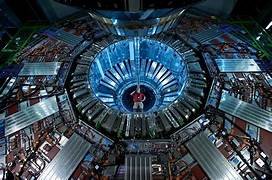The possibility of China leading such a monumental initiative not only highlights its technological expertise but also heralds a fresh era of cooperation and rivalry in the realm of particle physics. At the heart of this endeavor lies the aspiration to unravel some of the universe’s most profound mysteries by delving into the fundamental building blocks of matter. Particle colliders, such as the Large Hadron Collider (LHC) at CERN, play a pivotal role in this quest by enabling scientists to recreate the conditions of the early universe and study the behavior of subatomic particles.
The proposed collider dubbed the “Future Circular Collider” (FCC), is envisioned to surpass the scale and capabilities of existing particle accelerators, including the LHC. With a circumference of up to 100 kilometers, the FCC promises to offer unparalleled precision and energy levels, potentially unlocking new frontiers in particle physics and cosmology.
China’s emergence as a frontrunner in the race to build the FCC underscores its commitment to scientific innovation and its strategic vision for advancing research and development on a global scale. The country’s formidable expertise in engineering, coupled with its substantial financial resources, positions it as a formidable contender in the quest to push the boundaries of scientific knowledge.
Moreover, China’s ambitious pursuit of scientific excellence reflects its broader aspirations to assert itself as a leading player in the global scientific community. By investing in cutting-edge research infrastructure and fostering collaboration with renowned institutions and experts worldwide, China aims to elevate its stature as a hub for scientific discovery and technological innovation.
The prospect of China leading the construction of the world’s largest particle collider also raises questions about the geopolitical implications of such a monumental scientific undertaking. As countries vie for dominance in strategic industries and scientific breakthroughs, the competition for leadership in particle physics underscores the interconnectedness of science, technology, and geopolitics in the 21st century.
However, amidst the fervor of competition, there also exists ample opportunity for collaboration and cooperation. The field of particle physics has a long history of international collaboration, with institutions like CERN serving as a model for scientific diplomacy and knowledge-sharing on a global scale. As China embarks on its quest to build the FCC, there is potential for synergies and partnerships that transcend geopolitical boundaries and contribute to the collective advancement of scientific understanding.
Furthermore, the construction of the FCC holds the promise of significant societal and economic benefits, both for China and the global community. The development of groundbreaking technologies and scientific discoveries stemming from collider experiments could pave the way for transformative innovations in fields such as healthcare, materials science, and energy production.
China’s aspiration to construct the planet’s most extensive particle collider signifies a daring stride in humanity’s pursuit to unravel the enigmas of the cosmos. As the country prepares to embark on this monumental scientific endeavor, it stands poised to make profound contributions to our understanding of the cosmos and to shape the course of scientific exploration for generations to come.









